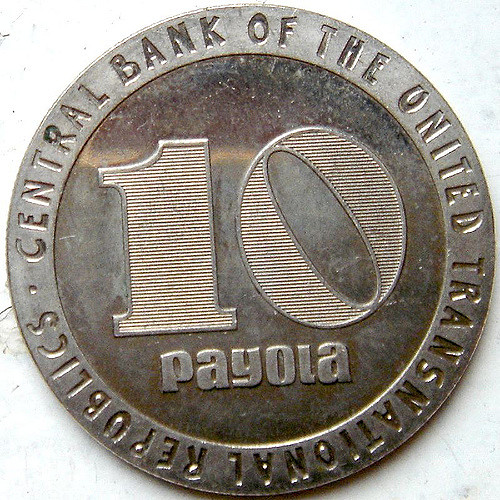I have long neglected this space, what so many more fascinating things to read and worry about in the world over the last several months. I figured it was time to clear out a few cobwebs.
Not coincidentally, I discuss some of these topics with Shel Holtz and Ike Pigott on the most recent episode of the For Immediate Release podcast:

“Expose” on Paid Placement in Contributed Articles
Jon Christian of The Outline has written what I’ll call an “expose” of paid placements in contributor networks, such as the popular Forbes and Huffington Post. I put the word in quotes because I can’t imagine many people familiar with the networks and contributed content in general are surprised (I suppose I am dad-joke obligated to say “Shocked, shocked!”) that there is pay-for-play going on, but it is illuminating to see some concrete examples. In short, some writers are offering to mention brands in their articles for a price- or are asking journalists to mention them in articles for payment.
My observations:
- We often complain about the decline of ethics in journalism, but some journalists mentioned in the piece have their ethics firmly intact, at least when it comes to payola.
- There has been a lot of complaining over the years about sites like HuffPo not paying their writers, but many writers actually do it for the exposure, for themselves or for their companies- and of course there is a valid SEO component, in which Google sees high-quality (not promotional) articles on relevant subjects as signals that the author (or more specifically their company) is an expert and should rank higher for the relevant terms. My point in bringing this up is that the “free content” economy is not about finding ways to get paid, but about raising the profile to get in front of those who will pay. That leave “pay for play” tactics to the unscrupulous weasels.
- Companies running “pay for play” schemes are not new. I don’t personally see the “pay to get mentioned” schemed myself, but many times over the years I have come into contact with companies that have networks of bloggers, writing for pay. There is a line between paying someone to write for you and enabling a network to churn out content, at which point you lose control over where you place it and how high the quality will be. And firms offering these blogger networks (like Blogdash, mentioned in the article, can find themselves in hot water with Google if they lean too hard on quasi- or un-ethical tactics.
Dilly Dilly Trademark Owners do not Dilly Dally – nor are they Dully-Dully – in delivering Cease and Desist
How often have you seen Big Bad Corporation come down on Small, Bootstrapping Startup over trademark protection with legal cease and desist letters and more? I always recall such a “Cease and Destroy” campaign from Apple on companies such as one-time client Podcast Ready as typical, where a company is overzealous protecting intellectual properties in ways that are pretty much proscribed by the USPTO.
That was my initial reaction when I heard about Anheuser Busch protecting it’s Bud Light”Dilly Dilly” ad campaign trademark against a small brewery in Minnesota, Modist, which launched a limited release Dilly Dilly IPA. However, it turns out the response by the corporate giant was a little more creative than that:
https://www.facebook.com/modistbrewing/videos/1769474706456277/
That was fun; and when you consider Modist was clearly infringing on the trademark and knew it, all parties took an expected, boring, sometimes nasty exchange into something fun. As Ike Pigott pointed out on FIR, there seemed to be a hint of collusion – that the whole thing was a setup, not just two brands taking advantage of this collision – but I’m not entirely sure about that. I’m just going to enjoy it.
#metoo Moment Hits the Community
One of the many stories that has taken my attention from writing for myself has been the outing of so many popular and powerful figures as having committed various forms of sexual harassment and assault. I don’t have much to add to the conversation, except to applaud those who have come out, enabling others who felt shamed or coerced into silence, or simply feared speaking out, to now do so.
I do, however, feel compelled to point out and applaud my good friend Laura Fitton; she saw five anonymous accusers point to someone who had harassed her- and decided to step forth and tell her story to bolster those who were afraid or unable to name themselves. It’s a brave thing to do and the type of thing that, more importantly, will encourage others to come forward and (we can only hope) stop this behavior.
We are going to see more and more of these stories come out, as decades of incidents are being unpacked at once. I call it the Great Cleansing. It’s what we do after this settles down is what will count for us. I won’t ask you “what are you doing about it” because you don’t owe that answer to anyone (nor do I owe it, and I will not presume to tell anyone else how to approach this), but I know we are all thinking about how this can – and should- make things better (and how we can) when the dust clears.
Three stories is enough; I’m out of shape.